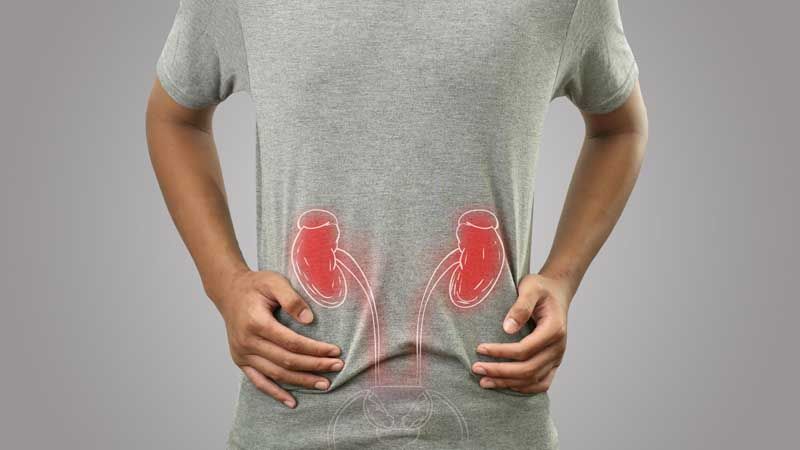Dietary Tips For Good Oral Health
- 9 months ago
Maintaining healthy gums and strong teeth depends heavily on your diet. What you eat not only affects your overall well-being but also impacts your oral health. A balanced diet rich in essential nutrients can help prevent cavities, gum disease, and other dental problems. Below is a comprehensive guide to dietary tips that will help you achieve and maintain optimal oral health.
Why Diet Matters for Oral Health?
The foods and beverages you consume influence your oral health significantly. A diet high in sugar and acidic foods contributes to tooth decay and enamel erosion, while nutrient-dense foods promote strong teeth and healthy gums. Consuming the right vitamins and minerals ensures that your teeth remain resilient against cavities, infections, and gum diseases.
1. Eat Calcium-Rich Foods for Stronger Teeth
Calcium is one of the most critical minerals for maintaining strong teeth. It helps to remineralize tooth enamel, making it resistant to decay and erosion. Without enough calcium, your teeth may become weak and prone to cavities. Include:
- Dairy products like milk, cheese, and yogurt
- Leafy greens, including spinach, collard greens, and kale
- Almonds, sesame seeds, and tofu
- Calcium-fortified foods like certain cereals and plant-based milk alternatives
2. Increase Vitamin D Intake for Better Absorption
Vitamin D enhances calcium absorption in the body, ensuring that your teeth receive the necessary minerals to stay strong. A deficiency in Vitamin D can lead to weakened teeth and gums, making them more susceptible to infections. Sources include:
- Fatty fish like salmon, mackerel, and sardines
- Fortified dairy and plant-based milk
- Egg yolks and mushrooms
- Sunlight exposure (ensure safe sun exposure for natural Vitamin D production)
3. Consume Fibrous Fruits and Vegetables for Natural Cleaning
Crunchy, high-fiber foods naturally clean your teeth and stimulate saliva production, which helps neutralize acids and wash away food particles. These foods act as natural toothbrushes, preventing plaque buildup. Eat more:
- Apples and pears, which provide a scrubbing effect
- Carrots, celery, and cucumbers
- Leafy greens such as romaine lettuce and spinach, which are rich in vitamins and minerals
4. Reduce Sugar Consumption to Prevent Cavities
Sugar is one of the primary culprits behind cavities and tooth decay. When sugar interacts with bacteria in your mouth, it produces acids that erode tooth enamel. To protect your teeth:
- Limit sugary drinks like sodas, fruit juices, and flavored coffee
- Avoid candies, pastries, and processed snacks
- Be cautious of hidden sugars in sauces, cereals, and packaged foods
- Choose natural sweeteners like honey or stevia in moderation
5. Stay Hydrated by Drinking Plenty of Water
Water is essential for maintaining oral health. It helps rinse away food particles, bacteria, and acids from your mouth. Fluoridated water strengthens tooth enamel, reducing the risk of cavities. Benefits of staying hydrated:
- Helps maintain moisture in your mouth, reducing dryness and preventing bad breath.
- Dilutes acids that can cause tooth decay
- Helps in the production of saliva, which has antibacterial properties
6. Eat More Phosphorus-Rich Foods for Enamel Protection
Phosphorus is another crucial mineral that works alongside calcium to strengthen tooth enamel. It plays a key role in the remineralization process, helping repair minor damage to enamel. Good sources include:
- Meat, fish, and poultry like chicken, turkey, and salmon
- Nuts and seeds, such as sunflower seeds and pumpkin seeds.
- Dairy products like cheese and yogurt
- Whole grains and beans
7. Limit Acidic Foods and Drinks to Protect Enamel
Acidic foods and drinks can gradually erode tooth enamel, leading to sensitivity and an increased risk of cavities. Some common culprits include:
- Citrus fruits like lemons, oranges, and grapefruits (consume in moderation and rinse your mouth afterward)
- Vinegar-based salad dressings and pickles
- Soft drinks, sports drinks, and energy drinks
- Tomatoes and tomato-based products like pasta sauce
8. Incorporate Probiotics for a Healthy Oral Microbiome
Probiotics help balance the bacteria in your mouth, reducing harmful bacteria that can cause gum disease and cavities. A healthy oral microbiome supports gum health and fresh breath. Foods rich in probiotics include:
- Yogurt and kefir
- Fermented foods like kimchi, sauerkraut, and miso
- Tempeh and probiotic supplements (if needed)
9. Snack Wisely to Reduce Bacterial Growth
Frequent snacking increases the risk of tooth decay, as bacteria have more time to produce acids that harm your enamel. If you need a snack, opt for tooth-friendly options such as:
- Cheese, which neutralizes acidity and provides calcium
- Nuts and seeds, which are packed with healthy fats and minerals
- Fresh vegetables and hummus
- Plain yogurt with fresh fruit instead of sugary desserts
10. Cut Down on Coffee, Tea, and Alcohol
While coffee and tea have antioxidants that may benefit health, excessive consumption can stain your teeth and lead to enamel erosion. Alcohol can contribute to dehydration and dry mouth, increasing the risk of cavities. If you consume these beverages:
- Use a straw to minimize contact with teeth
- Rinse your mouth with water afterward
- Avoid adding sugar to your coffee or tea
11. Chew Sugar-Free Gum to Promote Saliva Production
Sugar-free gum, especially those containing xylitol, helps stimulate saliva flow, which naturally washes away food debris and bacteria. Xylitol also inhibits bacterial growth, reducing the risk of cavities.
12. Avoid Hard and Sticky Foods That Can Damage Teeth
Hard foods like ice cubes, popcorn kernels, and hard candies can chip or crack your teeth, leading to dental emergencies. Sticky foods such as caramel, toffees, and dried fruits can cling to teeth, increasing the risk of cavities. Instead, choose:
- Soft but nutrient-dense snacks like bananas and avocados
- Nuts and seeds in moderate amounts
- Fresh, whole foods that don’t stick to teeth
Final Thoughts
Maintaining good oral health goes beyond brushing and flossing—it starts with what you eat. A nutrient-rich diet can strengthen your teeth, reduce the risk of gum disease, and promote fresh breath. By making mindful food choices and staying hydrated, you can support a healthier smile. Combine these dietary tips with regular dental check-ups and good oral hygiene habits to ensure lifelong oral health.








